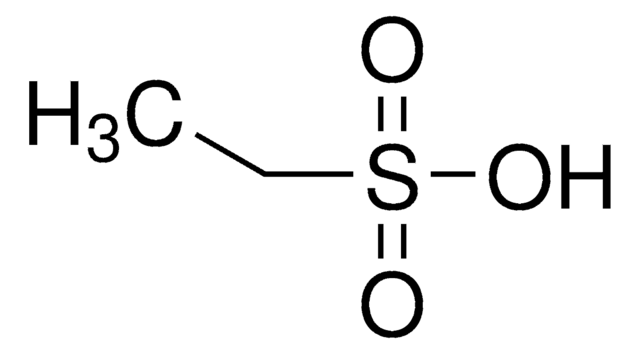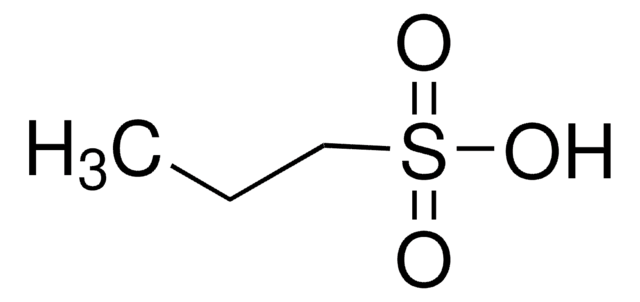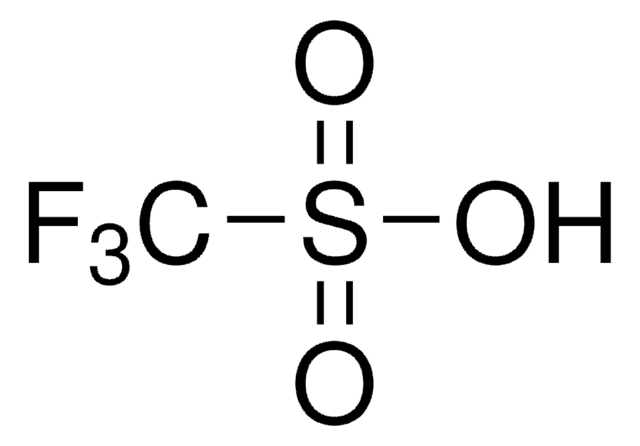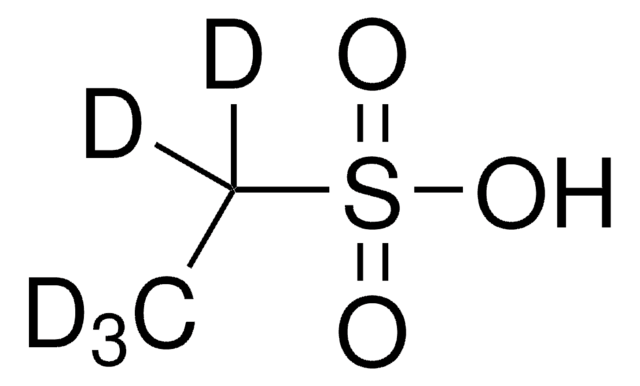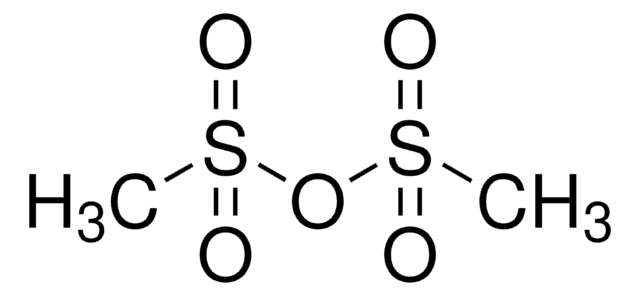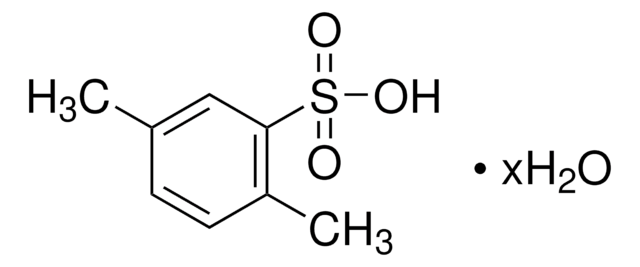All Photos(3)
About This Item
Linear Formula:
CH3CH2SO3H
CAS Number:
Molecular Weight:
110.13
MDL number:
UNSPSC Code:
12352100
PubChem Substance ID:
Recommended Products
concentration
70 wt. % in H2O
refractive index
n20/D 1.42
density
1.271 g/mL at 25 °C
SMILES string
CCS(O)(=O)=O
InChI
1S/C2H6O3S/c1-2-6(3,4)5/h2H2,1H3,(H,3,4,5)
InChI key
CCIVGXIOQKPBKL-UHFFFAOYSA-N
Looking for similar products? Visit Product Comparison Guide
Legal Information
Product of Arkema Inc.
Signal Word
Danger
Hazard Statements
Precautionary Statements
Hazard Classifications
Eye Dam. 1 - Skin Corr. 1B
Storage Class Code
8A - Combustible corrosive hazardous materials
WGK
WGK 3
Flash Point(F)
Not applicable
Flash Point(C)
Not applicable
Personal Protective Equipment
dust mask type N95 (US), Eyeshields, Gloves
Choose from one of the most recent versions:
Certificates of Analysis (COA)
Lot/Batch Number
Don't see the Right Version?
If you require a particular version, you can look up a specific certificate by the Lot or Batch number.
Already Own This Product?
Find documentation for the products that you have recently purchased in the Document Library.
Anne N Reid et al.
Applied and environmental microbiology, 74(5), 1583-1597 (2008-01-15)
Campylobacter jejuni causes food- and waterborne gastroenteritis, and as such it must survive passage through the stomach in order to reach the gastrointestinal tract. While little is known about how C. jejuni survives transit through the stomach, its low infectious
Anne N Reid et al.
Applied and environmental microbiology, 74(5), 1598-1612 (2008-01-15)
In order to cause disease, the food- and waterborne pathogen Campylobacter jejuni must face the extreme acidity of the host stomach as well as cope with pH fluctuations in the intestine. In the present study, C. jejuni NCTC 11168 was
E M Thurman et al.
Journal of chromatography. A, 957(1), 3-9 (2002-07-10)
Degradates of acetochlor and alachlor (ethanesulfonic acids, ESAs) were analyzed in both standards and in a groundwater sample using high-performance liquid chromatography-time-of-flight mass spectrometry with electrospray ionization. The negative pseudomolecular ion of the secondary amide of acetochlor ESA and alachlor
Maud D'Aveni et al.
Science translational medicine, 7(281), 281ra42-281ra42 (2015-04-04)
Granulocyte colony-stimulating factor (G-CSF) is routinely used to collect peripheral blood stem cells (PBSCs) from healthy donors for allogeneic hematopoietic stem cell transplantation (allo-HSCT). We show that, in both humans and mice, G-CSF mobilizes a subset of CD34(+) cells with
Robert A Yokley et al.
Analytical chemistry, 74(15), 3754-3759 (2002-08-15)
A Good Laboratory Practices (GLP) validated, multiresidue analytical method is presented for the determination of the chloroacetanilide herbicides metolachlor, acetochlor, and alachlor, the chloroacetamide herbicide dimethenamid, and their respective ethanesulfonic (ESA) and oxanillic (OA) acid degradates in ground and surface
Our team of scientists has experience in all areas of research including Life Science, Material Science, Chemical Synthesis, Chromatography, Analytical and many others.
Contact Technical Service